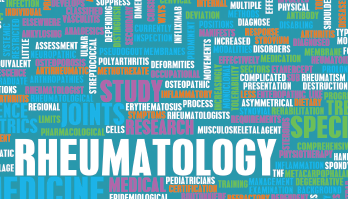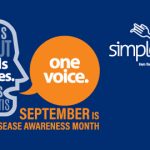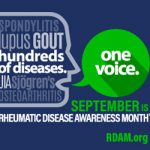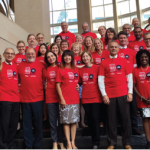
kentoh / shutterstock.com
It happens all the time. We can see it coming—that quizzical look or the hesitant nod after someone asks what we do for a living. We are so accustomed to the next question that we often provide the answer before someone even has a chance to ask it: “What’s a rheumatologist?”
The ACR has long recognized the need for greater public awareness about our
specialty and the many diseases we treat. Four years ago, as part of our Simple Tasks campaign, we launched Rheumatic Disease Awareness Month (RDAM) and established September as the time each year dedicated to drawing attention to the 100-plus conditions under the rheumatic disease umbrella. The goal of RDAM is not only to raise public awareness, but also to increase understanding about the symptoms, risk factors, treatment options, economic
impact and challenges—both medical and personal—associated with rheumatic diseases.
How have we accomplished this not-so-simple task? With the help of some well-known individuals who know firsthand what it is to live with a rheumatic disease.
In 2016, the inaugural year of RDAM, the ACR worked with Jennie Garth to develop a public service announcement (PSA) about her experience as the parent of a child with Still’s disease. Jennie encouraged viewers to learn more about rheumatic diseases by visiting the Simple Tasks website.
In the two following years, Terry Bradshaw became our spokesperson. His PSAs encouraged patients to pledge to live well with rheumatic disease. He shared his own story about how he managed to maintain an active lifestyle despite being diagnosed with both rheumatoid arthritis and osteoarthritis.
Each year’s message has been supplemented with a broad range of other types of communication, all geared toward increasing the visibility of our specialty and providing information and tools to encourage patients and those who are supportive of them to take action. These efforts have included high-impact digital signage in the Atlanta airport, robust social media engagement (#RDAM), grassroots advocacy campaigns on such issues as step therapy, online educational patient quizzes and a patient pledge that encouraged participants to make healthy lifestyle choices to manage their conditions.
We also developed the ACR’s first Rheumatic Disease Report Card in 2018, a first-of-its-kind report that sought to answer the question, “How easy is it to live with rheumatic disease in my state?”
The report card assigned states letter grades according to their progress on 1) providing adequate access to rheumatology care, 2) ensuring rheumatic disease care is affordable, and 3) encouraging and adopting healthy lifestyle habits that ease the burden of rheumatic disease. Case studies on important issues, such as step therapy and the role of pharmacy benefit managers, were also included. The majority of states received a C, suggesting a lot of work remains to be done to improve the quality of life for Americans living with rheumatic disease.



